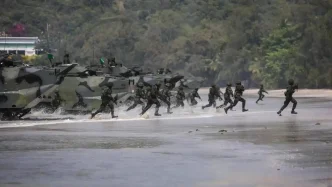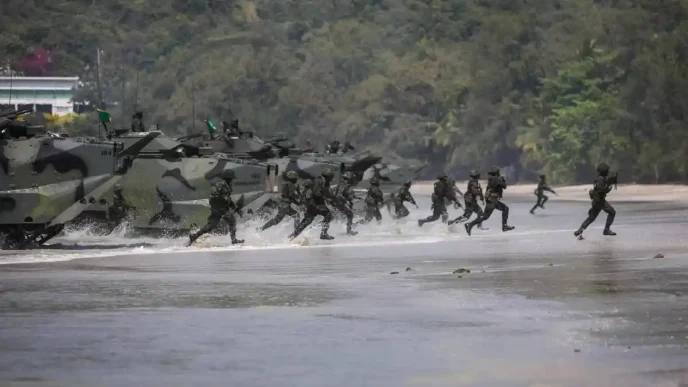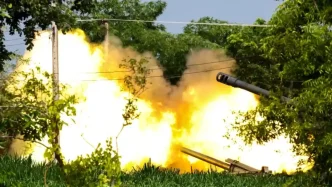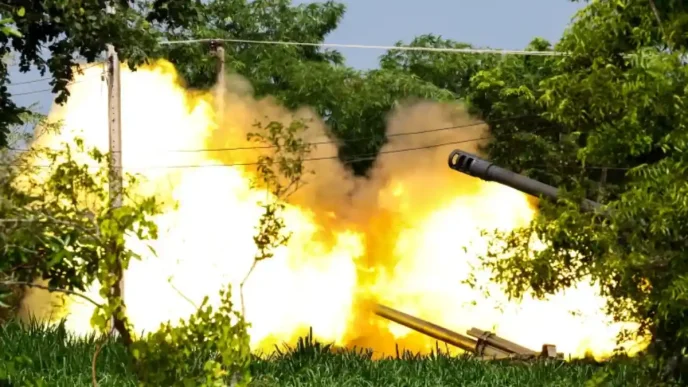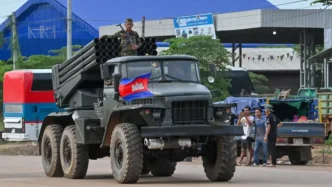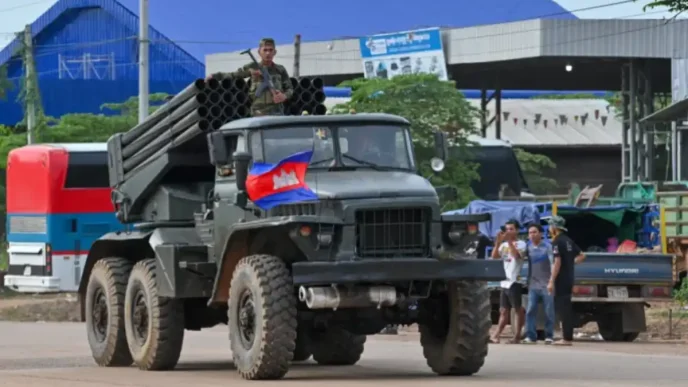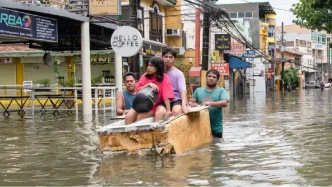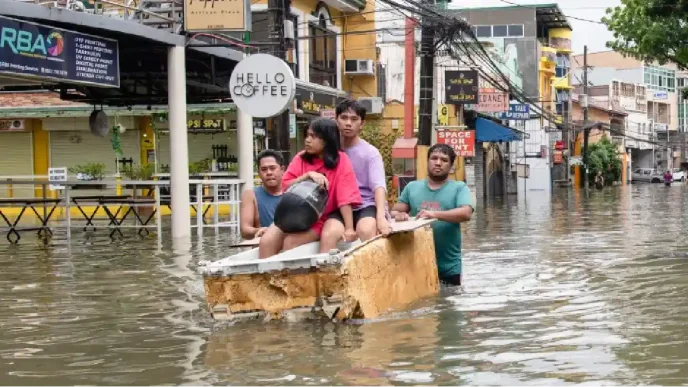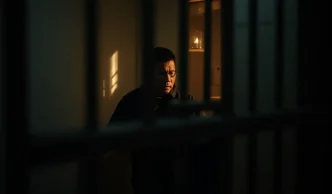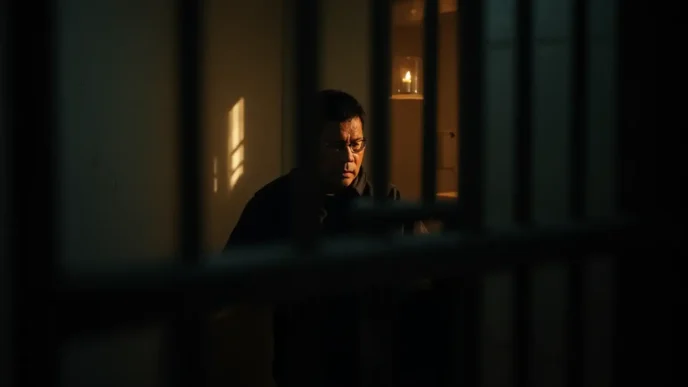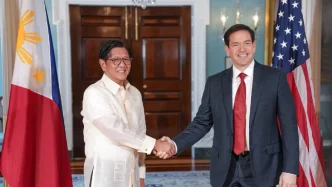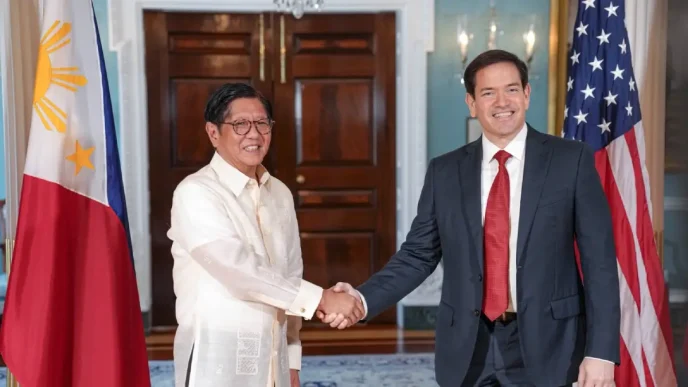Former Philippine President Rodrigo Duterte delivered a fiery speech to the Filipino community in Hong Kong on Sunday, addressing swirling rumours of an impending arrest warrant from the International Criminal Court (ICC) over alleged crimes against humanity during his administration’s brutal war on drugs. Speaking at Southorn Stadium, Duterte remained unapologetic, framing his actions as a necessary sacrifice for the Filipino people while dismissing the ICC’s pursuit as a long-standing vendetta.
“I did everything during my term as president not for myself and my family but for the Filipino people,” Duterte declared, responding to speculation about the ICC’s moves. His remarks come amid reports that he departed the Philippines for Hong Kong on 7 March, with some suggesting the trip was timed to evade potential legal action following a leaked tip about a possible warrant issuance on 8 March.
Duterte’s speech, delivered during a campaign event for PDP-Laban senatorial candidates, was marked by a blend of defiance and resignation. “Assuming what you hear is true, why did I do it? For myself? For my family? No, for you and your children, for our country,” he said, justifying the violent anti-drug campaign that defined much of his presidency from 2016 to 2022. Official figures estimate thousands of deaths during the crackdown, though human rights groups claim the toll could be significantly higher, with allegations of extrajudicial killings and systemic abuses.
A Legacy of Blood and Controversy
Duterte’s tenure as president was polarising, earning him both fervent support and fierce criticism. His war on drugs, launched with a promise to rid the Philippines of narcotics, led to a surge in police operations and vigilante killings. Critics, including international human rights organisations, have accused his administration of fostering a culture of impunity, with the ICC launching an investigation in 2018 into possible crimes against humanity. The Philippines withdrew from the ICC under Duterte’s leadership in 2019, but the court maintains jurisdiction over alleged crimes committed during the period of membership.
In Hong Kong, Duterte reiterated his stance that his actions were aimed at ensuring “some peace and security” for Filipinos. “What is my fault? I just did everything during my time to bring some peace to the lives of Filipinos,” he told the crowd. At one point, he gestured as if cutting someone’s head, a provocative act that appeared to mock the ICC’s portrayal of him as a perpetrator of violence. “They probably see me as someone who kills,” he remarked, drawing a mix of laughter and cheers from the audience.
The former president also claimed that the ICC had been targeting him for years. “I heard there’s an arrest warrant for me… this ICC or something has been after me for a long time,” he said, using expletives to underscore his frustration. While no official confirmation of a warrant has been issued by the ICC or the Philippine government, the speculation has intensified political tensions in Manila.
Resignation or Defiance?
Despite the bravado, Duterte struck a note of fatalism, suggesting he was prepared to accept whatever consequences awaited him. “If this is really my fate in life, that’s okay, I will accept it. There’s nothing we can do. If I’m arrested, if I’m jailed, so be it,” he said, prompting murmurs of support from the crowd. In a lighter moment, he jokingly urged attendees to contribute “five or 10 dollars” for a monument in his honour beside Jose Rizal, the Philippines’ national hero, should he be imprisoned.
This blend of defiance and resignation reflects the complex persona Duterte has cultivated—a populist leader who casts himself as a reluctant warrior against crime, forced to confront “evil” for the greater good. “We who don’t want trouble are sometimes forced to confront evil because it’s right in front of us. Who wants to kill? Why would I waste my time?” he asked rhetorically, echoing sentiments he has expressed throughout his political career.
Marcos Administration Responds
Back in Manila, the administration of President Ferdinand Marcos Jr has adopted a cautious stance on the ICC rumours. The Presidential Communications Office (PCO) stated on Sunday that the government “is prepared for any eventuality” regarding a potential arrest warrant for Duterte. PCO Secretary Jay Ruiz reiterated this position, while Undersecretary Claire Castro clarified that no confirmation of a warrant had been received from the Palace.
The Philippine National Police also signalled readiness, with Public Information Office chief Colonel Randulf Tuaño telling local media that the force was prepared for “any eventualities.” However, the lack of definitive information has left room for speculation about whether the Marcos government would cooperate with the ICC, given the Philippines’ withdrawal from the court and Duterte’s lingering influence in domestic politics.
The dynamic between Duterte and Marcos adds another layer of complexity. While Marcos has distanced himself from some of Duterte’s policies, including a more conciliatory approach to international bodies, political analysts suggest that any move to facilitate Duterte’s arrest could provoke backlash from his still-substantial base of supporters. Conversely, ignoring an ICC warrant—if one is issued—could strain the Philippines’ relations with the international community.
International and Domestic Implications
The ICC’s investigation into Duterte centres on allegations of widespread human rights abuses during the war on drugs, including the targeting of suspected drug users and dealers without due process. If a warrant is confirmed, it would mark a significant escalation in international efforts to hold Duterte accountable, though enforcement remains uncertain. The ICC lacks its own police force and relies on member states to execute arrests, a process complicated by the Philippines’ non-membership status.
Legal experts note that Duterte’s presence in Hong Kong, a semi-autonomous region under Chinese sovereignty, may further muddy the waters. China is not a signatory to the ICC’s Rome Statute, and Hong Kong’s legal system operates under a “one country, two systems” framework, potentially limiting the court’s reach. Whether Duterte’s trip was a calculated move to avoid immediate legal jeopardy remains a matter of speculation, with no evidence to confirm such intent.
Domestically, the issue reignites debates over Duterte’s legacy. Supporters view him as a strongman who tackled crime head-on, delivering tangible results in a country long plagued by drug-related violence. Critics, however, argue that his methods undermined the rule of law and left a stain on the Philippines’ democratic institutions. Human rights advocates have called for justice for the victims of the drug war, many of whom were from marginalised communities.
“If reforms to accountability mechanisms are introduced, they may help address the impunity seen during Duterte’s tenure,” said Maria Lopez, a Manila-based human rights lawyer, speaking hypothetically about potential policy shifts. However, she cautioned that “there is no evidence yet of concrete steps by the current administration to fully reckon with the past.”
A Polarising Figure Abroad
Duterte’s appearance in Hong Kong also underscores his enduring appeal among segments of the Filipino diaspora. Many overseas Filipino workers (OFWs), who form a significant economic backbone for the country through remittances, have historically supported Duterte for his tough-on-crime rhetoric. His speech at Southorn Stadium drew a sizeable crowd, with attendees expressing admiration for his unfiltered style and perceived dedication to national interests.
Yet, the event was not without controversy. Some Filipino activists in Hong Kong condemned Duterte’s remarks, accusing him of trivialising the suffering caused by his policies. “His jokes about monuments and gestures of violence are an insult to the thousands who died,” said Ana Reyes, a community organiser, in a statement to local media. The polarised reactions mirror the broader divide over Duterte’s legacy, both at home and abroad.
What Lies Ahead?
As speculation about the ICC’s next steps continues, Duterte’s future remains uncertain. If a warrant is issued, it could set a precedent for international accountability in the Philippines, though practical challenges to enforcement persist. For now, Duterte appears to be banking on public support and political manoeuvring to weather the storm, as evidenced by his continued engagement in campaign activities for PDP-Laban candidates.
The broader implications for the Philippines are equally significant. The ICC saga could influence public discourse on human rights, governance, and the balance between security and civil liberties. It may also test the Marcos administration’s ability to navigate domestic loyalties and international expectations, particularly if pressure mounts to address past abuses.
For the Filipino people, Duterte’s defiant speech in Hong Kong is a reminder of the unresolved tensions at the heart of his presidency. Whether he faces legal consequences or emerges unscathed, his shadow looms large over the nation’s political landscape, a testament to the enduring complexity of his rule. As one attendee at the Hong Kong event put it, “Love him or hate him, Duterte still commands attention—and that’s not going away anytime soon.”



